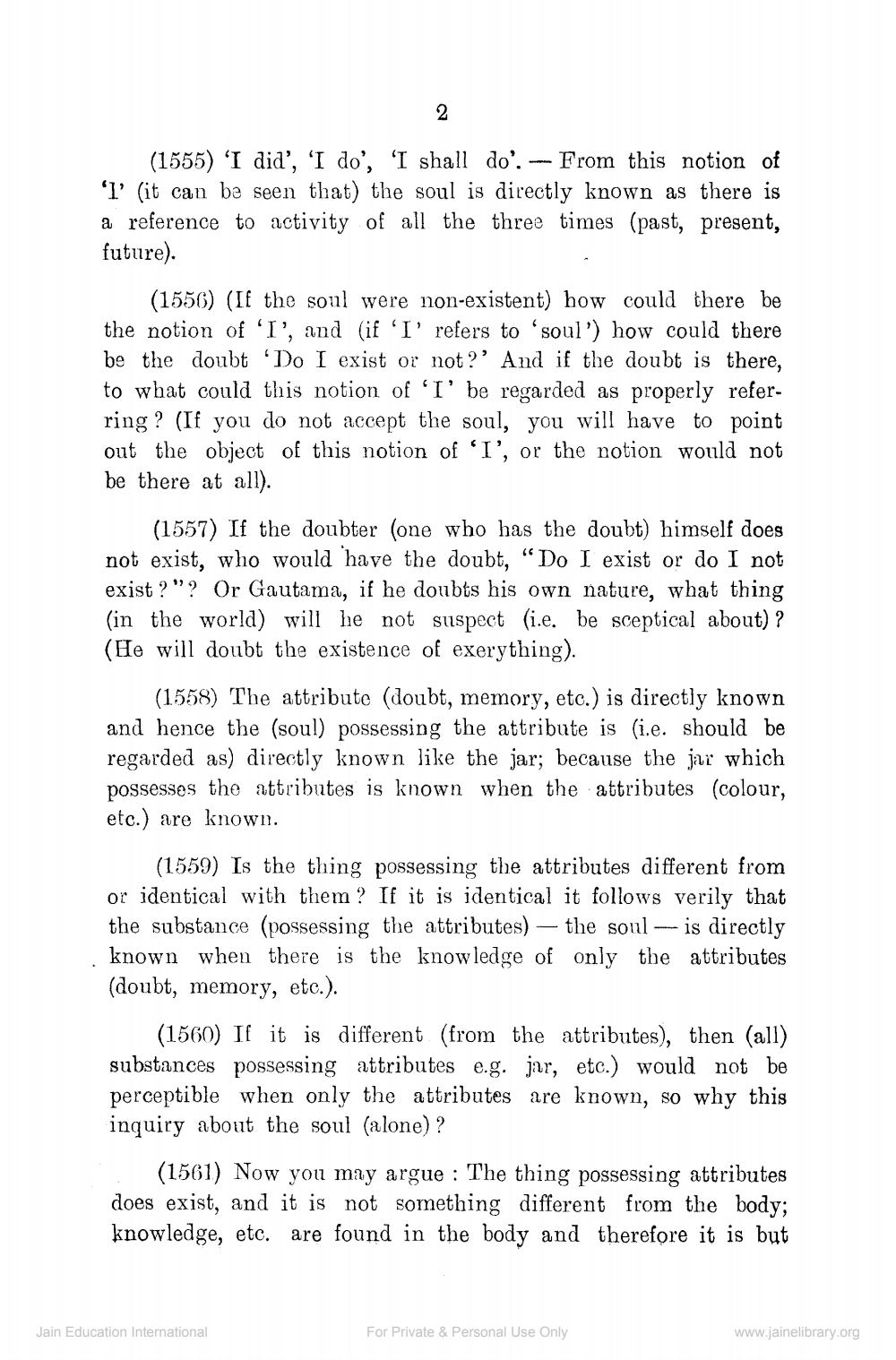________________
(1555) 'I did', 'I do', 'I shall do'. - From this notion of 'l' (it can be seen that) the soul is directly known as there is a reference to activity of all the three times (past, present, future).
(1556) (If the soul were non-existent) how could there be the notion of 'I', and (if 'I' refers to 'soul') how could there be the doubt 'Do I exist or not?' And if the doubt is there, to what could this notion of 'I' be regarded as properly referring ? (If you do not accept the soul, you will have to point out the object of this notion of 'I', or the notion would not be there at all).
(1557) If the doubter (one who has the doubt) himself does not exist, who would have the doubt, "Do I exist or do I not exist ? "? Or Gautama, if he doubts his own nature, what thing (in the world) will he not suspect (i.e. be sceptical about) ? (He will doubt the existence of exerything).
(1558) The attribute (doubt, memory, etc.) is directly known and hence the (soul) possessing the attribute is (i.e. should be regarded as) directly known like the jar; because the jar which possesses the attributes is known when the attributes (colour, etc.) are known.
(1559) Is the thing possessing the attributes different from or identical with them? If it is identical it follows verily that the substance (possessing the attributes) — the soul --- is directly known when there is the knowledge of only the attributes (doubt, memory, etc.).
(1560) If it is different (from the attributes), then (all) substances possessing attributes e.g. jar, etc.) would not be perceptible when only the attributes are known, so why this inquiry about the soul (alone) ?
(1561) Now you may argue : The thing possessing attributes does exist, and it is not something different from the body; knowledge, etc. are found in the body and therefore it is but
Jain Education International
For Private & Personal Use Only
www.jainelibrary.org




